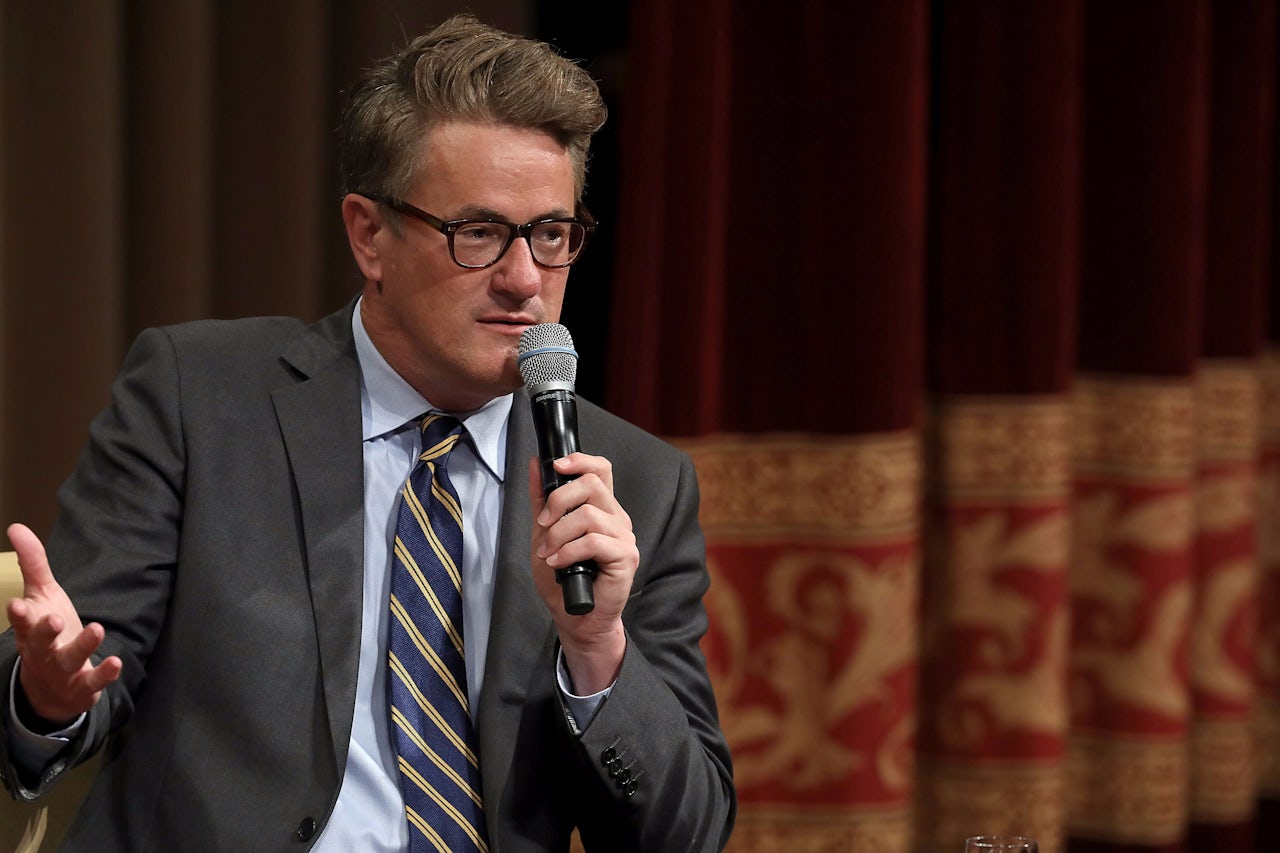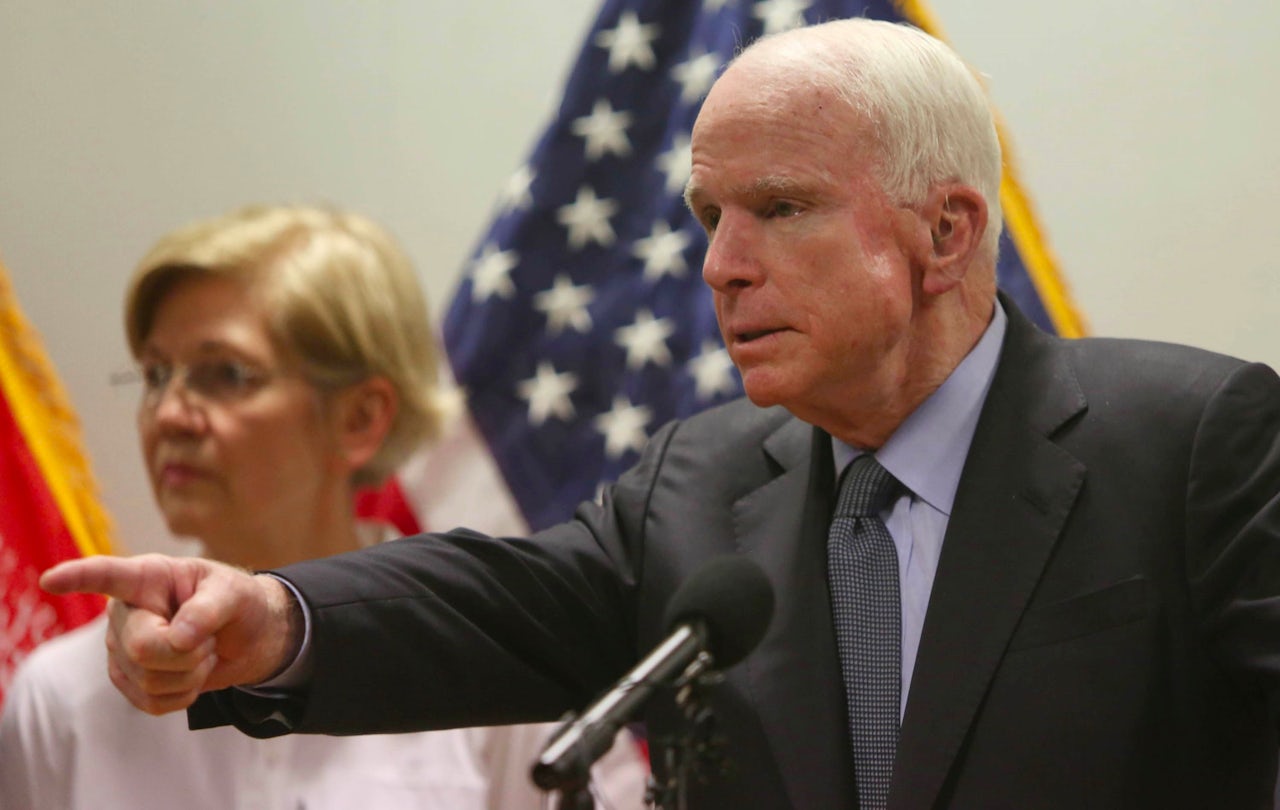It’s fitting that on Tuesday — the same day that our government voted to move debate forward on needlessly stripping health care from millions — the world’s dumbest pundit Chris Cillizza hit publish on 650 words about why he thinks Joe Scarborough, erstwhile congressman and television host, is running for president. The case rests on Scarborough writing an op-ed about Trump ruining the Republican Party and the fact that and his co-host Mika Brzezinski are the topic of a recent New York magazine cover story, but like so much of what Cillizza says or thinks, it’s wrong and it doesn’t make any sense to anyone whose brain hasn’t been broken by useless D.C. gossip.
And as for 2020 itself, it shouldn’t matter to anyone yet at all.
For all of his many faults, Cillizza is far from the only one to be doing this sort of pontificating about the next presidential election. On Monday, Essence published a piece that attempted to dispel some of the arguments against Kamala Harris, a freshman California senator from the center-left wing of the party who has been frequently mentioned as a 2020 candidate. Nor is this anything new: two days after the 2012 election, Politico predicted that the 2016 election would be between Hillary Clinton and Jeb Bush (they got it half right); a few days later, the New York Times speculated on Chris Christie’s prospects.
Whoever faces Trump in 2020 is most likely going to suck.
Cillizza and his ilk are incorrigible, but this time around it’s not just pundits who are talking about this. This year has seen a spike in this conversation, though, especially as the gullible cry out for a Reasonable Republican to primary Trump in 2020 and the center and the Bernie left’s continuing fight over last year’s Democratic primary and attempt to establish control over the progressive movement spills into arguments about who’s best positioned to run in 2020. The former is beyond saving; for the latter, it could not be a dumber fight at a dumber time.
The country is in the middle of a full-blown crisis on several fronts, from health care to the environment to the stripping of civil liberties for LGBTQ citizens. The only obstacle to the final destruction of our safety net is the Trump administration and congressional Republicans’ own incompetence; if Trump were slightly less of an idiot, Obamacare might already be dead right now, we might be even further down the warpath with Iran, and we might have a national voter ID law on the table.
So, the opposition to Trump worrying itself with who might run for president in three years is ill-timed, to say the least. To start, the left should reconcile itself with a hard truth: whoever faces Trump in 2020 is most likely going to suck. Aside from the cast of McCainian characters on the right who bloviate about the rudeness of Trump’s tweets but share his enthusiasm for tearing apart immigrant families and stealing money from the poor, the Democrats are looking at a roster of candidates who are aging, not known to much of the general public, or haven’t generated much enthusiasm at all.
Even if a progressive favorite like Bernie Sanders or Elizabeth Warren was able to win the nomination and then the presidency, it’s a high probability that any promise of free health care and college would ultimately get derailed by a Republican (or even, at this point, Democratic) Congress. And, as with practically everyone tied to the party including those two, there will be nothing near a comprehensive anti-war component in the platform.
That’s because the left is in a tenuous spot right now at every level of government, not just the presidency. An oft-repeated statistic is that since the election of Barack Obama in 2008, the Democrats have lost over a dozen governors’ mansions and a net total of nearly 1,000 seats in state legislatures, in addition to both chambers of Congress. There are 25 states overall where the governor is a Republican and both chambers of the legislature have Republican majorities.
The left is in a tenuous spot right now at every level of government.
The reason for this is that you can’t build a lasting top-down coalition focused around a personality. Obama was the most successful Democratic politician in many years — his win against McCain in 2008 was the biggest popular vote margin for a Democrat since Johnson in 1964 — but that success did not translate down-ballot, leading to huge losses in both the 2010 and 2014 midterms. And that’s the best case scenario — the worst case scenario is the “I’m With Her” campaign, where not only did the down-ballots lose, but Hillary Clinton lost as well.
The left has the ideas for how to move forward, but at this point, not many people in government to act on them. There are very few “left” Democrats currently in Congress, and aside from the Medicare for All plan, which now counts a majority of House Democrats among its sponsors, there haven’t been many proposals that have won over left-of-center Democrats.
At the state level, the outlook isn’t much better; even in California, which is one of the few states wholly run by Democrats, a single-payer plan that passed the upper chamber was halted last month by the House speaker. And if your dream is an independent third party, the only one on the left that currently has any real traction is the Vermont Progressive Party; it counts nearly a dozen state legislators and the lieutenant governor among its ranks, but it’s nowhere near taking over the state.
It’s not that change is doomed from the start, but rather that it’ll take time. Decades, even, before we see the fruits of that labor in an electoral sense. But change is worth doing; it’s the only option. And as we’ve seen this week, taking the long, hard road is the only way to ensure victories stay victories.
But make no mistake: there are many things that could be done right now to fight back against our current situation. Mobilizing, as the national disability rights organization ADAPT has done heroically, to stop this incredibly cruel health care bill from passing; Organizing, as the East Bay chapter of the Democratic Socialists of America have in California, for single-payer health care; Laying the groundwork, as a plethora of activists and groups are all over the country, to take the House, gubernatorial seats, and state legislative majorities from the kind of people who would dare to throw at least 22 million of their constituents under the bus to pay for a tax cut for the ultra-rich.
None of these things, you’ll notice, have anything to do with the next presidential election. For the foreseeable future, it should stay that way.

